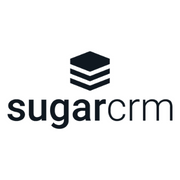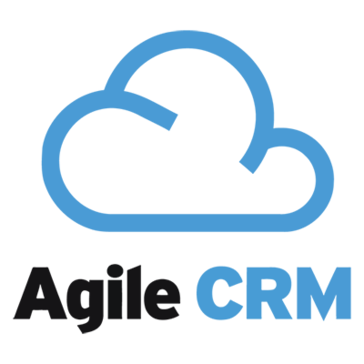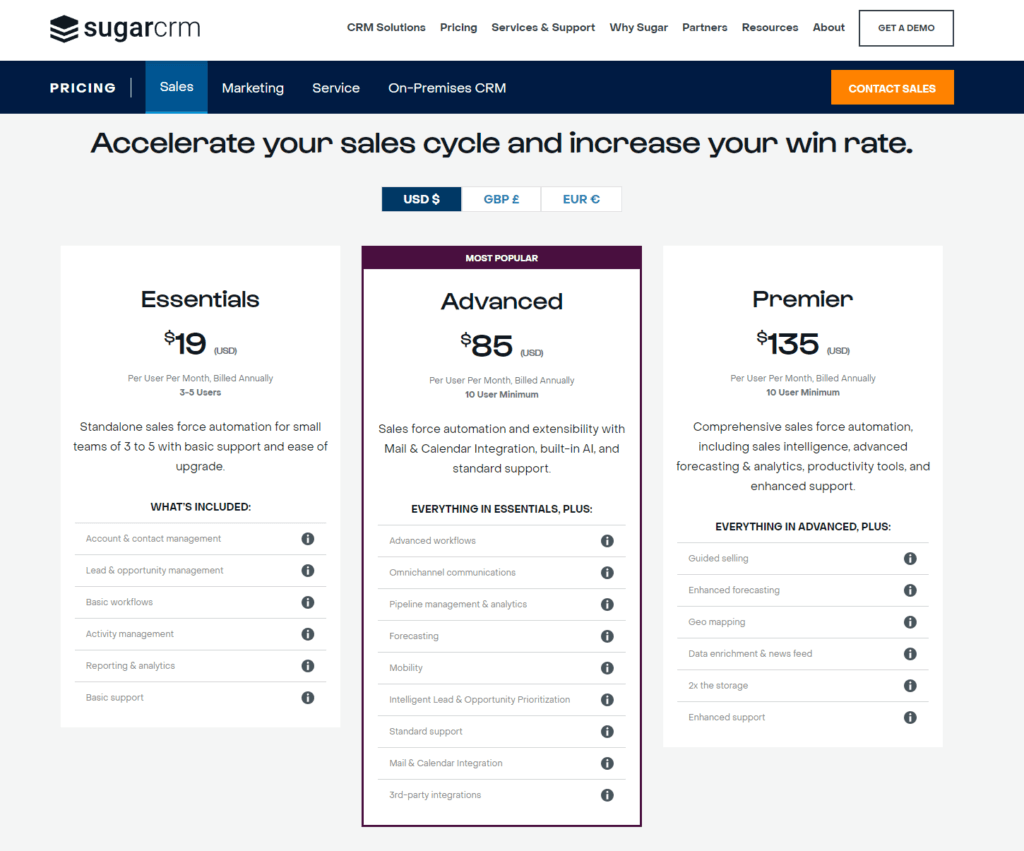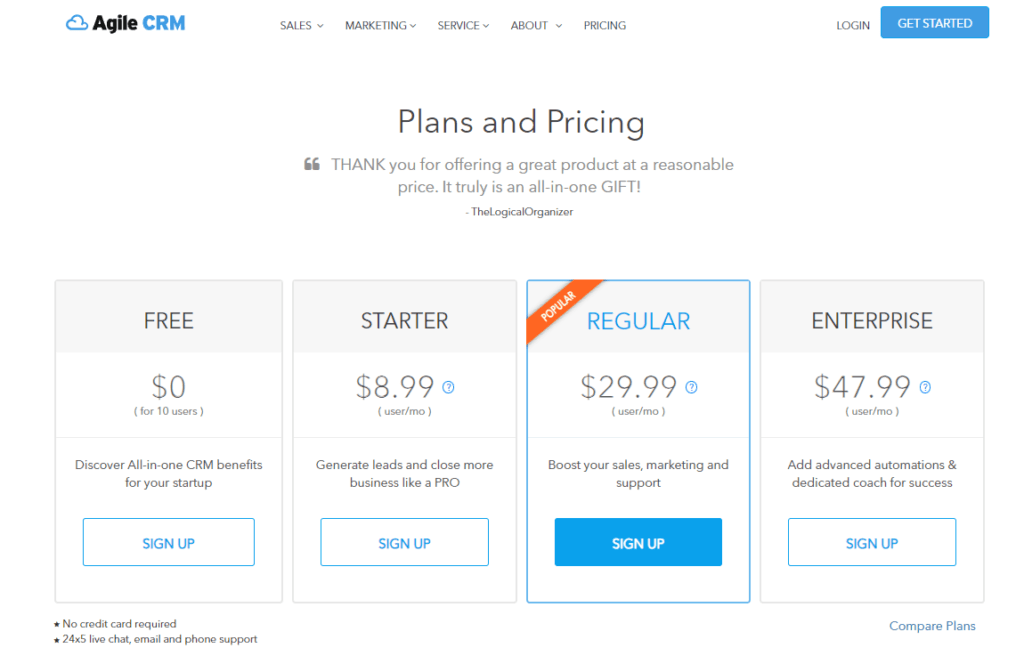In the digital age, where customer relationship management (CRM) forms the backbone of successful businesses, choosing the right platform can seem like navigating a maze with countless options. Among the plethora of tools available, SugarCRM and Agile CRM stand out, but for very different reasons. SugarCRM, with its comprehensive suite and deep customization capabilities, caters to businesses looking for a robust, scalable solution. Agile CRM, on the other hand, positions itself as a more streamlined, user-friendly option, perfect for small to medium-sized businesses aiming for agility and efficiency. If you’re at the crossroads trying to decide which path to take, let’s dive into a detailed comparison to help illuminate the best CRM tool for your business needs.
| SugarCRM | Agile CRM |
|---|---|
 |  |
| G2 Score -3.9 out of 5 | G2 Score -4.0 out of 5 |
| TrustRadius Score -7.9 out of 10 | TrustRadius Score -7.5 out of 10 |
Ease of Use and User Interface: Simplifying the CRM Journey
The user interface of a CRM system plays a pivotal role in how quickly your team can adopt the tool and integrate it into their daily workflow. An intuitive, user-friendly interface can dramatically reduce the learning curve and help your team focus on what they do best—nurturing customer relationships and driving sales.
SugarCRM: Robust Functionality with a Learning Curve
SugarCRM is known for its extensive feature set designed to cater to businesses looking for a comprehensive CRM solution. This robustness, however, comes with a certain level of complexity in its user interface. Users might find SugarCRM’s UI to be less intuitive, requiring a steeper learning curve to navigate efficiently. The platform offers powerful customization capabilities, but leveraging these features to tailor the UI can demand a significant time investment or even necessitate specialized training.
This complexity can potentially slow down initial adoption rates and may require ongoing support to ensure all team members can utilize the system effectively. However, for organizations that require the depth of features and customization that SugarCRM provides, the investment in mastering the UI can lead to substantial long-term benefits.
Agile CRM: User-Friendliness at Its Core
Agile CRM, on the other hand, places a strong emphasis on delivering a user-friendly experience right out of the box. Its interface is designed to be intuitive, with a clear, logical layout that makes navigation straightforward for users of all skill levels. Agile CRM provides easy access to its range of features without overwhelming users, making it an excellent choice for small to medium-sized businesses looking for a CRM system that their team can quickly adopt and efficiently use.
Agile CRM’s focus on user-friendliness extends to its customization options, which are designed to be accessible without requiring deep technical expertise. This approach not only facilitates faster onboarding but also ensures that businesses can start seeing the benefits of their CRM investment sooner.
Pricing: Evaluating Cost Against Functionality
The cost of a CRM system, juxtaposed with the suite of features it offers, significantly influences a business’s choice, especially when budget constraints are a consideration.
SugarCRM: Scalable Pricing for Growing Businesses

SugarCRM’s pricing model is tiered, designed to accommodate businesses of varying sizes and needs. Starting from its more basic offerings aimed at smaller businesses, to its more advanced, feature-rich packages suited for large enterprises, SugarCRM offers flexibility in scaling. The entry-level plans provide core CRM functionalities, while higher tiers add advanced features such as marketing automation, in-depth analytics, and increased customization capabilities.
Pricing for SugarCRM is typically on the higher end, reflecting its extensive suite of features and the scalability it offers. Businesses interested in SugarCRM must consider not only the initial cost but also potential investments in customization and integration to fully leverage the platform’s capabilities. For companies with complex needs and a budget to match, SugarCRM presents a robust solution capable of supporting significant business growth.
Agile CRM: Cost-Effective Solutions for SMBs

Agile CRM is recognized for its competitive pricing, making it an appealing choice for small to medium-sized businesses. The platform offers a straightforward pricing structure with clear delineations between each tier, based on features, user numbers, and support levels. Agile CRM includes a free tier for very small teams looking to get started with CRM functionalities, with the option to scale to more feature-rich packages at reasonable costs.
The affordability of Agile CRM does not come at the expense of functionality. Even its lower-priced tiers provide a comprehensive set of tools covering sales, marketing, and service automation, designed to improve efficiency and customer engagement for SMBs. For businesses seeking a balance between cost and capability, Agile CRM offers a compelling package that delivers value without necessitating a hefty investment.
Customization and Flexibility: Crafting Your CRM Experience
The ability to tailor a CRM to fit the unique processes and needs of your business is paramount. Let’s explore how SugarCRM and Agile CRM measure up in the realm of customization and flexibility.
SugarCRM: The Powerhouse of Customization
SugarCRM offers an extensive level of customization that caters to businesses looking to tailor every aspect of their CRM experience. Whether it’s modifying the user interface, creating custom workflows, or integrating with third-party apps, SugarCRM provides the tools to make it happen. This platform is built for those who want a system that can evolve and adapt to complex business processes and changing needs. However, harnessing this power often requires a dedicated team or IT support, making it a more suitable choice for larger organizations or those with the resources to invest in customization.
Agile CRM: Streamlined Flexibility
Agile CRM takes a different approach, offering a balance between customization capabilities and ease of use. It provides a range of pre-built templates and drag-and-drop functionalities that allow for significant customization without the need for extensive technical knowledge. Agile CRM’s focus is on delivering a user-friendly experience that doesn’t sacrifice the flexibility small to medium-sized businesses need to adapt the platform to their processes. While it might not offer the depth of customization available in SugarCRM, Agile CRM provides enough flexibility to meet the needs of most SMBs looking for an efficient, straightforward CRM solution.
Customer Support and Training Resources: Empowering Users for Success
The availability and quality of customer support and training resources are essential for ensuring smooth CRM adoption and usage. Effective support can help resolve issues quickly, while comprehensive training resources ensure users can make the most of the CRM’s features. Let’s compare how SugarCRM and Agile CRM stack up in these areas.
SugarCRM: Comprehensive Support with a Focus on Education
SugarCRM offers a robust support system designed to meet the needs of businesses with complex CRM requirements. Customers have access to various support channels, including email, phone, and an online support portal. Higher-tier plans often come with additional support benefits, such as dedicated account managers and 24/7 support options, catering to businesses that require immediate assistance for critical issues.
Beyond troubleshooting and technical support, SugarCRM emphasizes user education through Sugar University. This platform offers a wide range of training resources, from online courses and webinars to certification programs, designed to enhance users’ CRM skills and knowledge. This comprehensive approach to support and education ensures that businesses can fully leverage the power of SugarCRM, though it’s worth noting that the most advanced training resources may come at an additional cost.
Agile CRM: Streamlined Support Focused on Efficiency
Agile CRM aims to provide efficient and accessible support to ensure small to medium-sized businesses can resolve issues and queries quickly. The platform offers support via email, live chat, and phone, with responsiveness being a key focus. Agile CRM also provides an extensive knowledge base filled with articles, guides, and video tutorials that cover common questions and topics, enabling users to find answers quickly and independently.
In terms of training, Agile CRM offers webinars and online tutorials designed to help users understand and utilize the CRM’s features effectively. This focus on streamlined, accessible support and training resources reflects Agile CRM’s commitment to user-friendliness and operational efficiency, particularly for SMBs that may not have extensive IT resources.

Related: Check out our free SEO suite

Automation and Workflow Capabilities: Streamlining for Efficiency
Automation in CRM systems plays a pivotal role in streamlining sales processes, improving customer service, and ensuring marketing efforts are consistent and timely. It’s about reducing manual tasks, ensuring team members can focus on building relationships and closing deals. Let’s see how SugarCRM and Agile CRM stack up in offering automation and workflow capabilities.
SugarCRM: Comprehensive Automation for Complex Processes
SugarCRM excels in providing a wide range of automation features designed to streamline complex business processes across sales, marketing, and customer service. With its advanced workflow management tools, SugarCRM enables businesses to automate tasks such as lead assignment, follow-up emails, and opportunity tracking. Furthermore, its process automation capabilities allow for the creation of custom workflows that can cater to intricate business rules and scenarios, making it an ideal choice for larger enterprises or businesses with specific automation needs.
However, the depth of SugarCRM’s automation features can also introduce complexity, requiring a solid understanding of the system to set up and manage these workflows effectively. For businesses with the resources to invest in customization and training, SugarCRM offers powerful tools to significantly enhance operational efficiency and data-driven decision-making.
Agile CRM: User-Friendly Automation for SMBs
Agile CRM takes a more streamlined approach to automation, focusing on simplicity and ease of use without compromising on functionality. It provides small to medium-sized businesses with intuitive tools to automate sales, marketing, and service tasks. With Agile CRM, users can easily set up automated workflows for lead nurturing, appointment scheduling, and email campaigns directly from a visual interface, making automation accessible even to those with limited technical expertise.
While Agile CRM may not offer the same level of complex process automation as SugarCRM, its strength lies in delivering key automation capabilities that can cover the majority of SMB needs. This approach ensures that smaller teams can quickly benefit from automation, improving their productivity and customer engagement without the need for extensive setup or customization.
Conclusion
In our comprehensive journey comparing SugarCRM and Agile CRM, we’ve navigated through pivotal aspects that play crucial roles in selecting the right CRM platform for your business. From the adaptability offered through customization and flexibility, the seamless connection with other business tools via integration capabilities, to the insightful data-driven decision-making support provided by reporting and analytics features. We also considered the critical financial commitment through pricing models and the invaluable support structure for users via customer support and training resources.
READ NEXT:
- Crazy Egg vs Mouseflow: The Best Analytics Tool for You
- SugarCRM vs Wise Agent: The Best CRM Tool for You
- Crazy Egg vs IBM Cognos Analytics: The Best Analytics Tool for You
- Friends+Me vs SocialBakers: The Best Social Media Management Tool for You
- Crazy Egg vs GoSquared: The Best Analytics Tool for You
- 9 Best Marketing CRM Software (For You): In 2023
- 19+ Top Customer Relationship Management (CRM) Software: What’s Best?






















Comments are closed.